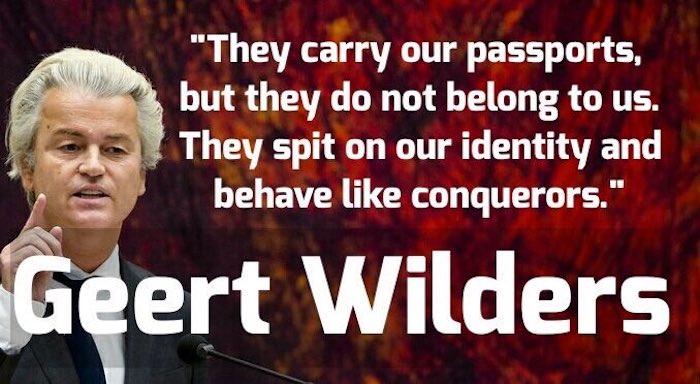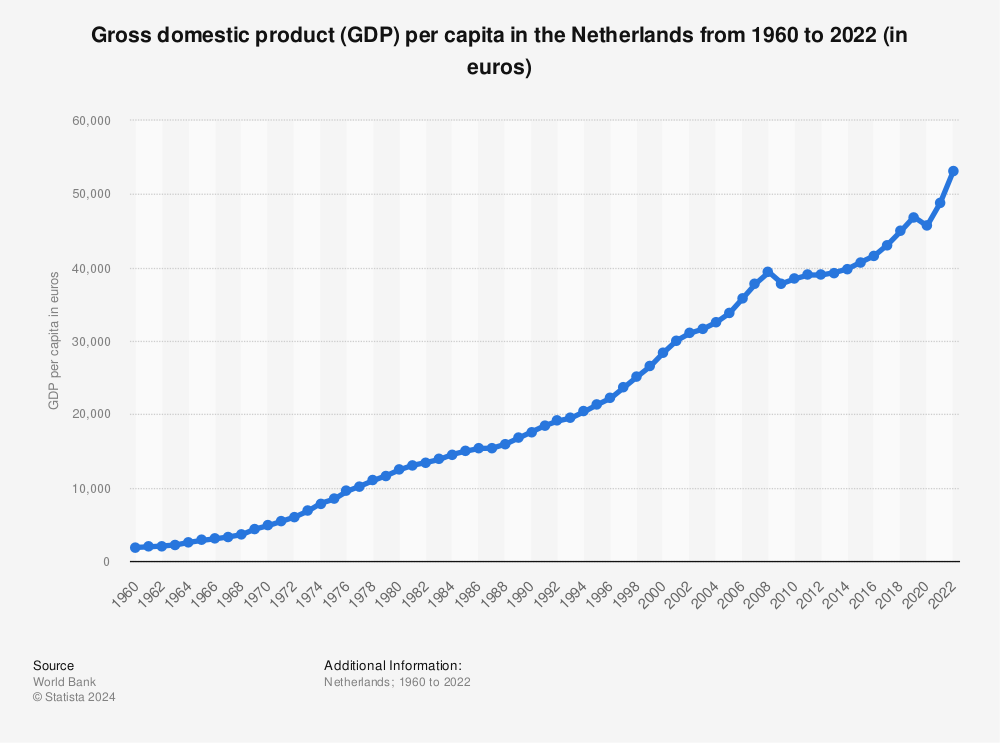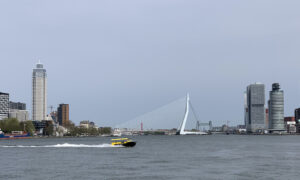(Editor’s note: Dispatches, based in the Netherlands, is dedicated to the free movement of people, which we believe is a human right.)
The brilliance of Charles Dickens’ “A Christmas Carol” is the “it’s never too late to change” narrative. Scrooge knows happiness, retreats into misery, then regains his humanity.
This can happen to the collective.
Since the 1970s, the Netherlands has transformed from a sleepy backwater into an economic powerhouse punching far above its weight. This affluence is largely a product of globalism – attracting capital and talent from across the globe, then selling the most advanced technology to every advanced society. The entire digital world is built on its technical foundation.

But the sudden possibility of a nativist, nationalist government led by a Trump admirer threatens to cut off the global talent the Netherlands must have to keep thriving. The emergence of Geert Wilders’ anti-Muslim, anti-migrant Party for Freedom as the largest parliamentary bloc is due increasingly to Dutch people ill at ease with “outsiders.” The Netherlands, Luxembourg and Belgium are less and less “countries” with national identities and more and more multiethnic amalgams more like Singapore and the United Arab Emirates.
That’s 21st century reality … the fading of 19th century national constructs.
The trend of English, the global business language, replacing Dutch in day-to-day activities is emblematic of this change. As a Dutch student I interviewed puts it, “When I go out to the stores and cafés in Eindhoven and no one speaks Dutch, I feel like I’m no longer in my country.”
I get it.
‘Ik spreek geen Nederlands‘
My daughter Lucy and I were out in Eindhoven recently. Lucy had just returned after six years away after having moved back to the United States. As we walked around town Christmas shopping, she noted how a lot has changed.
What we both noticed was no one was speaking Dutch.
We went to the Douwe Egberts coffee café on Vrijstraat where the crew were all cross-talking orders in English. Then we went to de Bijenkorf department store and the salesperson who helped us was from Mexico. She predictably spoke colloquial English. Dutch, not so much.
Our friend Sunny, a college student from Lithuania who speaks not a lick of Dutch, works at a sporting goods store in Centrum. There, she occasionally takes heat from incredulous (and annoyed) locals who can’t believe this 6-foot-tall, blonde teenager doesn’t speak Dutch.
During a Christmas Eve shopping trip to Maastrict, I asked one of the Turkish-speaking employees at a KFC how many of the staff was Dutch. “None,” was her answer.
We were in Amsterdam the week before Christmas and everywhere we shopped or ate, it was English. Even on the streets, it was English. Go to any college down – Maastricht, Tilburg or Delft – and English is the lingua franca.
The Dutch dichotomy comes from one fact: The Netherlands is a country of 17 million people with the economy of a country with 100 million. An economy that operates in English and places it at No. 4 in terms of GDP per capita behind Luxembourg, Ireland and Denmark.
If you make a list of 10 countries where people are most fluent in English, that list correlates exactly to a list of the 10 wealthiest countries in the world, with the exception of Switzerland, where German prevails.
Ghost of Christmas Past
It wasn’t always like this.
Christmas 1953 saw the Netherlands at one of its lowest points in history. At the start of the year, the North Sea flood killed 2,551 people. To make things worse, a lackluster 1950s-era economy led to the largest out-migration in Dutch history, according to Canon van Nederland, the history compendium taught in Dutch schools. As many as 350,000 people emigrated with government support to countries such as Canada, New Zealand and Australia. In the early 1960s, rapid economic growth kicked in and the next thing you know, the Netherlands is luring gastarbeiter from Italy, Spain, Greece, the Balkans, Turkey and Morocco to fill labor shortages.
Which is how we got to where we are today.
Interesting factoid:
After World War II, the Dutch spent two years rounding up German families in the middle of the night, giving them an hour to pack, then interning them in concentration camps before forcibly sending them back to Germany.
This really happened and these were the formative years for the nativist backlash going on today.

Find more statistics at Statista
Ghost of Christmas Present
Today, the Netherlands economy is booming and most Dutch people are experiencing a level of affluence not seen since the Golden Age of the East India Company.
Yet, in November, Scrooge Wilders and his Party for Freedom place first in the national election, becoming the largest party in the Dutch parliament. Wilders has always been anti-Islam, which means he’s anti-immigration. The problem is, a lot of talented engineers come from the Islamic world, including Iran, Egypt and Morocco. No better way to punish them than to deny Dutch companies critical talent, right?
All of a sudden, the Far Right wants to pull in the welcome mat at exactly the time when the Dutch economy is dialed up to 11 on a scale of 10. ASML and other tech companies have warned this will be catastrophic for the economy. But Wilders, like Trump in the United States, knows the more extreme the rhetoric, the more his base coalesces around him.
Ghost of Christmas Yet to Come
Under Wilders, the Netherlands becomes a dark and dreary country that’s declared itself Muslim-rein. Dutch pre-teens, teens and elderly poor replace all the Poles, Ukrainians and Turks working the tough jobs. (“Are there no workhouses?”)
The Dutch parliament devolves into an American-style standoff between progressives and the extreme right politics of grievance and racism.
The rules have changed.
In Dicken’s “A Christmas Carol,” Scrooge sees his own grave and the Ghost of Christmas Yet to Come tells him he can avoid his fate if he changes his ways. In the final analysis, the pundits spend all their time dissecting how populist leaders make their way to power. But the story really is the people who elect them.
The choice for the Dutch is between remaining the internationalists they have always been or becoming something they’ve never been, a closed society.
Co-CEO of Dispatches Europe. A former military reporter, I'm a serial expat who has lived in France, Turkey, Germany and the Netherlands.















